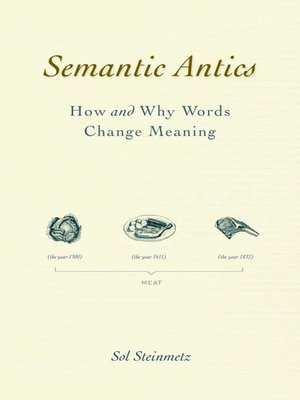
Sign up to save your library
With an OverDrive account, you can save your favorite libraries for at-a-glance information about availability. Find out more about OverDrive accounts.
Find this title in Libby, the library reading app by OverDrive.



Search for a digital library with this title
Title found at these libraries:
| Library Name | Distance |
|---|---|
| Loading... |
"My favorite popular word book of the year"
-William Safire, NY Times 6/22/2008
A fun, new approach to examining etymology!
Many common English words started out with an entirely different meaning than the one we know today. For example:
The word adamant came into English around 855 C.E. as a synonym for 'diamond,' very different from today's meaning of the word: "utterly unyielding in attitude or opinion."
Before the year 1200, the word silly meant "blessed," and was derived from Old English saelig, meaning "happy." This word went through several incarnations before adopting today's meaning: "stupid or foolish."
In Semantic Antics, lexicographer Sol Steinmetz takes readers on an in-depth, fascinating journey to learn how hundreds of words have evolved from their first meaning to the meanings used today.
-William Safire, NY Times 6/22/2008
A fun, new approach to examining etymology!
Many common English words started out with an entirely different meaning than the one we know today. For example:
The word adamant came into English around 855 C.E. as a synonym for 'diamond,' very different from today's meaning of the word: "utterly unyielding in attitude or opinion."
Before the year 1200, the word silly meant "blessed," and was derived from Old English saelig, meaning "happy." This word went through several incarnations before adopting today's meaning: "stupid or foolish."
In Semantic Antics, lexicographer Sol Steinmetz takes readers on an in-depth, fascinating journey to learn how hundreds of words have evolved from their first meaning to the meanings used today.







